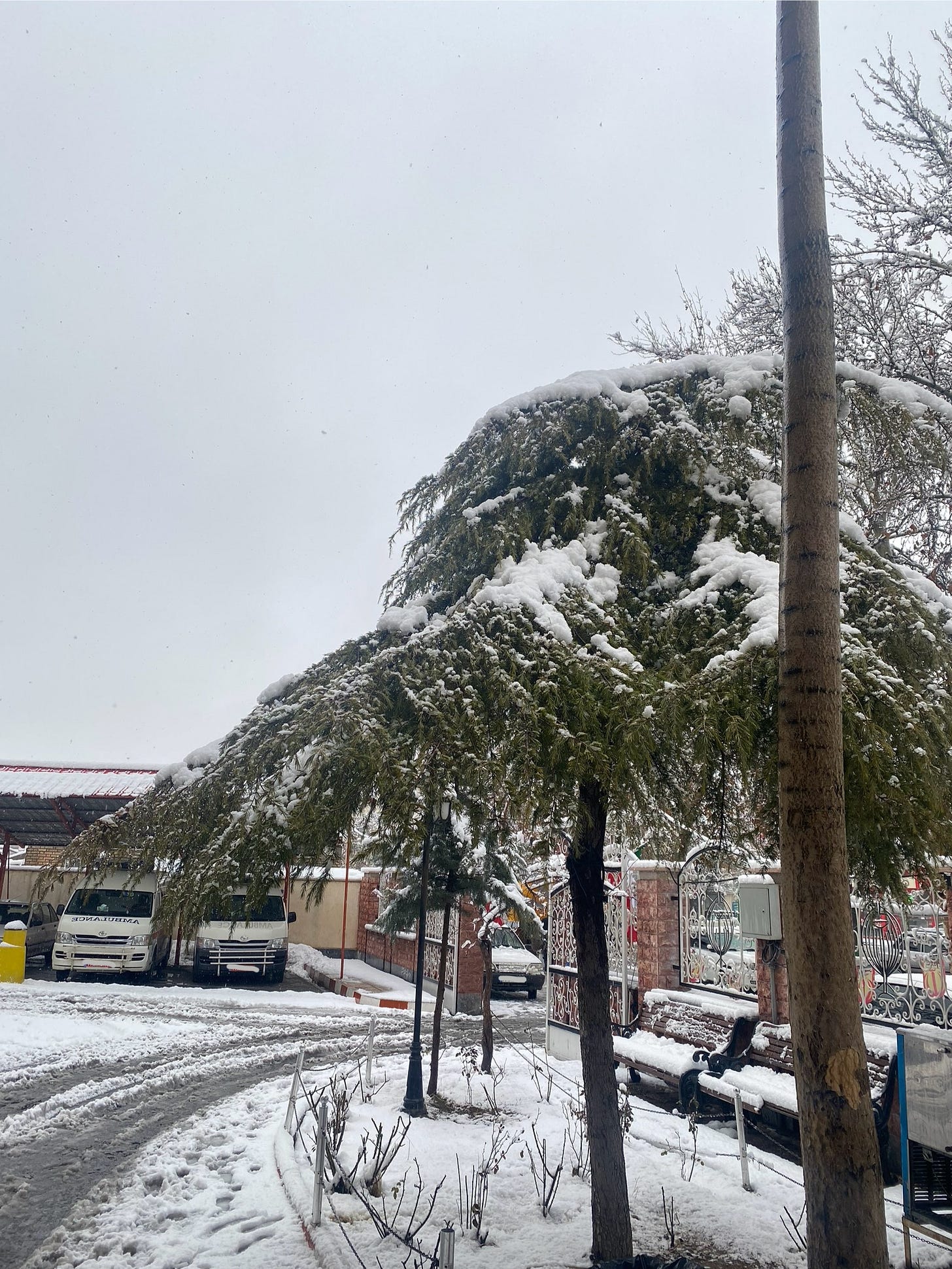Self-Discipline, Adaptability, and Inner Growth
Break free from rigid routines, embrace self-trust, and build a life rooted in principles—not just habits.
“The wise adapt themselves to circumstances, as water molds itself to the pitcher.” —Chinese Proverb
Stephen Hawking once said, “Intelligence is the ability to adapt to change.” We often think of change as something external—new environments, challenges, or circumstances. But what if the most profound change isn’t what happens around us, but within us?
True transformation isn’t just about reacting to life’s shifts; it’s about evolving from the inside out—unlearning old beliefs, embracing new insights, and allowing ourselves to be reshaped by inspiration, experience, and self-awareness.
When Doubt Creeps In
"I feel like my words are redundant and lack value."
This thought echoed in my head for three weeks straight.
Week One: I didn’t write at all.
Week Two: I convinced myself no one needed to hear what I had to say.
Week Three: I reached out to friends, and their encouragement reminded me why I started in the first place. Amazing
and helped me clear my thoughts and get back on track. They reminded me that I hadn’t lost my direction, but I needed a pause, and that’s okay.
The struggle wasn’t about writing itself—it was about purpose.
It wasn’t about running out of words—it was about questioning whether they mattered.
And then I realized something: The value of words doesn’t lie in their originality, but in perspective. In an age overflowing with information, what matters isn’t just what we say—it’s how we see the world, and how that vision helps shape a life of meaning and freedom.
What’s important to me is that my words, what I build, helps people to create their own healthy lifestyle that lets them to live an authentic life: free, healthy and wild.
Hope, Doubt, and the Space Between
As I sit in a hospital courtyard, I can’t help but reflect on how fear grips us when life takes unexpected turns. We hold tight to what we have, fearing loss. We chase what we desire, fearing we won’t get it.
But if nothing in this world is truly ours, what is there to lose?1
Doubt sneaks in. Am I on the right path? Am I doing enough?
We crave certainty, validation from something greater than ourselves. We want an anchor, something to hold onto in the unknown.
But here’s the paradox:
Too much doubt destroys confidence.
Too much confidence blinds us with ego.
So where do hope and doubt meet?
They meet in a mind that is open to change.
We believe certainty equals security. But in truth, doubt keeps a door slightly open—it allows for new perspectives, the reshaping of old beliefs, the quiet realization that we don’t have to have it all figured out.
The key is knowing what to question.
Doubt your thoughts, your assumptions, your expectations.
But never doubt yourself, your ability to change, and your freedom to create.
Because when you trust yourself and remain open to questioning everything else, you become teachable, humble, and free.
Self-Discipline and the Power of Principles
Self-discipline isn’t just about willpower; it’s about roots.
If you lack principles, your discipline is fragile—easily broken when things go wrong.
But what are principles? And how do they differ from values?
Values are what we aspire to—kindness, courage, honesty.
Principles are the unshakable truths we live by, even when it’s hard.
One of the most powerful ways to refine your principles is through First Principles Thinking—a method championed by Elon Musk and other great thinkers. Instead of relying on assumptions or doing things a certain way just because “that’s how it’s always been,” First Principles Thinking breaks ideas down to their core truths and builds from there.
I’m still learning about this, so ai have nothing much to say, just what I’ve learned so far.
Musk describes it as reasoning from the ground up, rather than analogy. For example, when revolutionizing battery production, he didn’t ask, "What do batteries cost?" Instead, he broke it down to:
What are the fundamental raw materials of a battery?
How much do those materials cost?
Can we redesign the process to make it cheaper and better?
The same applies to self-discipline:
Break It Down: What’s the core reason behind your goals? Are you disciplined because of societal expectations, or because your principles demand it?
Challenge Assumptions: Are your habits built on true effectiveness, or just inherited routines?
Rebuild with Intention: Construct discipline based on what genuinely works for you, not just what worked for others.
If your discipline is just blind repetition, it won’t last. But when it’s rooted in principles—deeply understood and intentionally chosen—it becomes unshakable.
I saw this when I tried to cut sugar 11 months ago. I believe that my lifestyle gotta be healthy, because that frees my mind, soul and empowers my body to work on things that I love: learning, creating and growing with others.
If I tried to blindly follow Sara Wilson’s advice, I couldn’t do it, or it wouldn’t be fun.
But there is a challenge here.
The real challenge is balancing discipline with self-compassion.
Discipline builds habits.
Habits shape a lifestyle.
A strong lifestyle carries us through the long run.
But does self-discipline mean rigid control?
If we accept something, does it mean we submit to it?
Or does true acceptance allow us to move through the experience, extract its lessons, and emerge stronger?
These are the questions that I constantly ask, and try to learn more about them. I’m not looking for a one-word answer because life isn’t a yes/no question, it’s an essay that you write, an artwork that you create.
By thinking in first principles, we ensure that our discipline isn’t just about forcing ourselves into rigid routines, but about aligning with the truths that make us better, stronger, and freer.
The Myth of Rigidity: Do We Have to Schedule Everything?
Structure gives clarity. But too much structure can make us prisoners of our own plans.
As my mom always says to me: “My dear, you gotta be more flexible if you wanna enjoy your life. Your schedule isn’t everything, there’s much more to this life than your plans. Sometimes God has better plans for you, stay open to the miracles of your life.”
When we hold too tightly to schedules, are we honoring our principles—or just clinging to control out of fear?
Some see flexibility as a weakness, a lack of discipline. But is that true? Or is flexibility actually trust—trusting that you don’t need to micromanage every detail to stay true to yourself?
Because life changes. And we change, too.
If your identity is built on rigid expectations, reality will always disappoint you.
But if it’s built on principles, with flexibility in execution, you remain resilient.
Flexibility is not a betrayal of your values.
It is proof that you trust yourself enough to adapt.
Three Practical Takeaways
Let Self-Discipline Empower You, Not Enslave You.
True discipline isn’t about perfectionism; it’s about commitment to growth. Build habits that serve you, not habits that control you.Doubt Your Thoughts, Not Yourself.
Question your plans, challenge your beliefs, but never doubt your ability to grow. When in doubt, return to your principles.Flexibility Is Strength, Not Weakness.
Rigidity comes from fear. Flexibility comes from self-trust. Trust yourself enough to adapt without feeling like you’re losing your way.
At the end of the day, life is unpredictable. But when your soul aligns with your heart, you will always find your way.
What about you?
How do you balance discipline with self-compassion? Do you struggle with flexibility? Share your thoughts—I’d love to hear your perspective.
Let’s talk about it in the comments below 👇
A question: do you wanna talk more about this, how to build habits, and build healthy routines in future posts? Let me know what you think 💭
Quote from Marcus Aurelius






Sweetest Haniyeh,
What a beautiful piece to read first thing in the morning. You’re inspiring my day and my heart. I’m so glad you’re feeling this way and are back.
I made a list of things I love and learned about this article. I’ll save some for when I restack with a Note - and I’ll learn more each time I reread.
But you never have to fear losing my friendship - you have a permanent place in my heart.
And your mother is correct. Listen to her and please send her my love (to your sisters, too).
Knowing you’re practicing self-compassion? Smile and a tear of joy!
I’m so proud of you.
Sending my love, support and joy 🕊️✨🤍